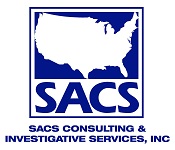A business email should be brief, cordial, and professional. It’s straightforward and actionable. Here are the most critical elements of for proper email etiquette:
- Intentional subject line: It is the most prominent element of professional email writing. This line should be clear and concise.
- Greeting: Hello, Hi, Good Morning, Good Afternoon, or Greetings followed by the person’s first name work.
- Clear and concise messaging: Get right to the point. Be detailed yet concise. Split messaging into paragraphs if needed. ONLY write about one thing as multiple asks can confuse and frustrate the recipient.
- Call to action: Usually included in the last line or paragraph of the body, a call to action should ensure that the reader is clear on what next steps they need to take.
- A proper email sign-off: Sincerely yours or best regards work well. The following line should include your email signature: your name, job title, company name, email address, and phone number.
Dos and Don’ts of Email Etiquette
For cold emails or referrals, DO use an introduction
For example, “Dear Ms. Mandell: My name is Tim Dimoff, President of SACS Consulting & Investigative Services. I was referred to you by . . .” or “My name is Tim Dimoff, and I am a national speaker writing to you about . . .” This is especially important when introducing yourself to new contacts, potential customers, clients, and employers who want to know how you received their contact information.
DON’T Include Humor and Sarcasm
Emails can easily be misinterpreted, as humor is culture-specific. Avoid humor and sarcasm in emails as the recipient may be confused or offended.
DO Double-Check Your Attachments
When you attach a file, take a moment to ensure you have attached the referenced document(s), and you have the RIGHT attachments.
DON’T Hit “Reply All”
Only do this if everyone needs to know.
DO Reply Expediently
Replying within one business day is expected. Leave someone hanging any longer, and you are not only perceived as rude—it could cost you business.
DO Remember Emails are Public
Even though an email is deleted, it can always be retrieved from the company’s server or cloud service. Before you click “send,” consider what may happen if a business colleague, your competitor, or any unintended recipient reads your email.
DON’T Be Negative
An email in all uppercase letters connotes anger in an email. These antagonistic messages cause awkwardness long after the email has been sent and received. If you must relay bad news, call a face-to-face or videoconference meeting.
DO Proofread
Check and recheck for spelling and grammatical errors.
Conclusion
Few things can tarnish your professional brand, like a poorly written, misguided email. One click of the “send” button can be the difference between a successful business exchange and a potential HR issue or coworker conflict.
Recommended Next Steps
- Establish and annually update your electronic communication policy. You can reduce liability, protect assets and stay out of court by adequately managing your employees” online behavior. Written policies and monitoring software are indispensable business tools.
- Give employees clear notice that:
- They do not have a reasonable expectation of privacy when working from company assets;
- The company has the right to monitor anything transmitted or stored on its computer system;
- Management intends to exercise that right; and
- Your policy includes menacing, threatening, obscene, discriminatory, or offensive language shall never be used in any emails, or consequences will pursue.
We Can Help Craft the Proper Electronic Communication Policy
We can help keep your organization, brand, and employees safe through a clearly defined Electronic Communication policy. Contact us to speak with one of our HR Policies specialists to help circumvent any HR disaster or litigation.

